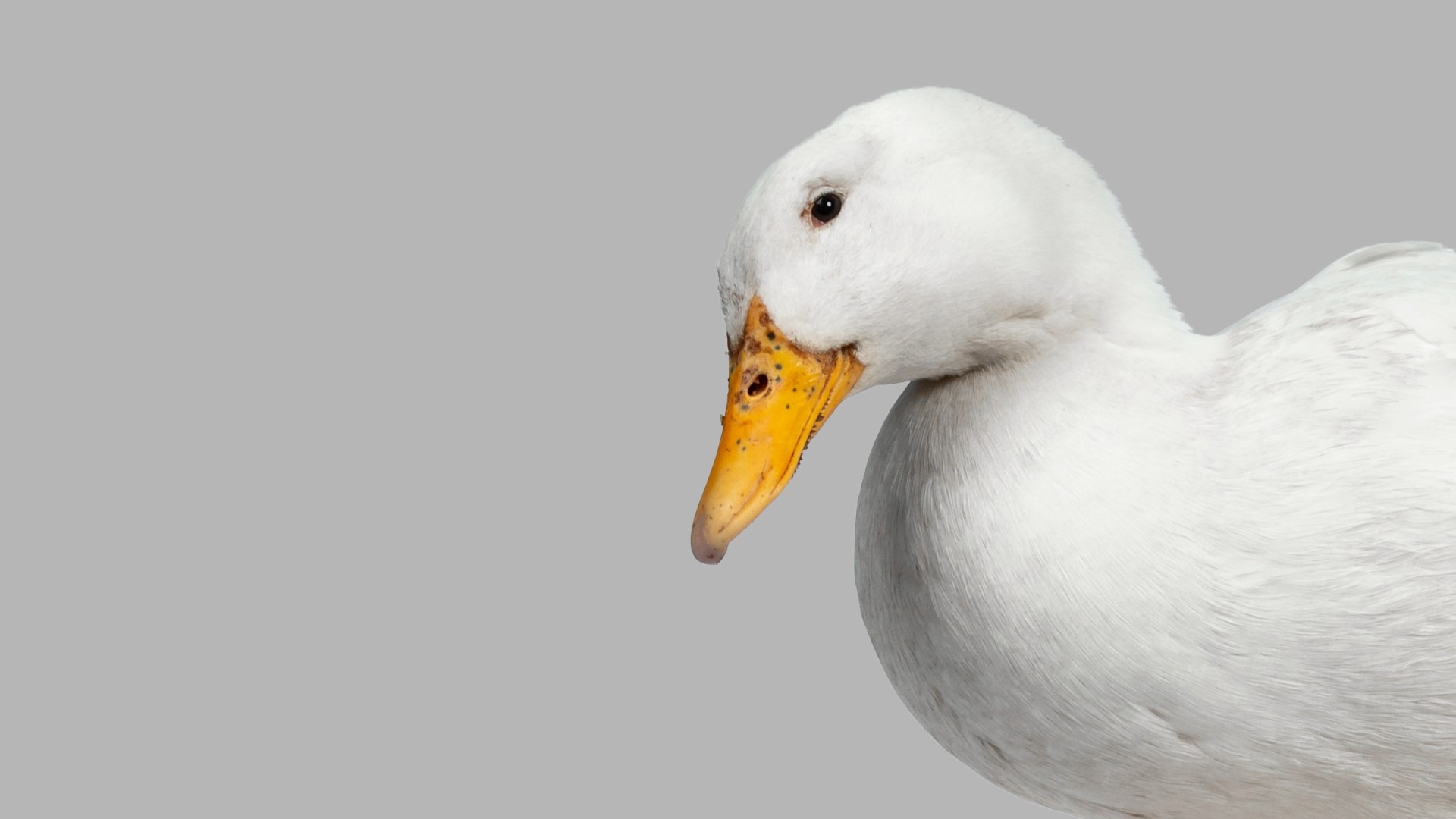
Foie gras (french for “fat liver”) is a specialty food made from the engorged liver of a duck or goose. The amount of fat in the bird’s liver at the time it is slaughtered is said to make the liver taste more rich and buttery. It is sold either as a whole liver or prepared into a pâté, parfait or mousse.
France is by far the largest producer and consumer of foie gras and it is considered a delicacy in French cuisine. It is also sold in European countries, including the UK, as well as the U.S and China.
To produce this expensive delicacy, the liver of the duck or goose must be specially fattened in time for slaughter in a process known as ‘gavage’.
Every year in France, over 40 million ducks are forced into cages so small they can’t even stretch their wings. Trapped and helpless, a metal tube is thrust down their throats and vast quantities of food are forcibly pumped into their stomachs so that their livers swell painfully to up to ten times their natural size. There is no escape and no respite.
Birds in the foie gras industry are kept in tiny metal cages, or crowded sheds where disease and injury run rife. Ducks are force-fed twice a day by having a pipe rammed down their throat for around 12 days. Geese will have to endure this three times a day for around 17 days. Their oversized livers push on other organs causing many birds to have trouble even standing or breathing. Once their livers reach a sufficient size, the birds are typically slaughtered at 100 days for ducks and geese at 112 days (Viva!, 2014).

The suffering of these birds is so extreme it would be illegal in this country. However, free trade laws mean that every year we import tonnes of these diseased livers, marketed as an expensive delicacy. Britain is a driving force behind this cruel industry.
For the millions of little female ducklings born in France another horror awaits. Only male duck livers are used, and therefore all female ducklings are tossed alive into electric mincers at just a few days old to suffer a violent and horrific death – their only crime is they don’t put on weight as quickly as their brothers.
The pain and suffering caused by foie-gras production has no place in a civilised society. Our aim is simple – to make Britain a foie gras free zone.
A number of countries and jurisdictions have outlawed force-feeding, and the production, import or sale of Foie-gras.
Foie gras is illegal to produce in the UK due to the horrendous nature of its production, but it is not illegal to import it or sell it. Due to pressure from animal rights groups and the general public, major supermarkets in the UK no longer sell foie gras. However, it is still imported and sold in some high-end restaurants and certain upmarket online stores and supermarkets.
Viva! and other animal rights groups continue to call for a complete ban on the importation of foie gras into the UK to stop the demand for this cruel trade.
We have mounted high profile campaigns against companies to demand that they stop selling foie gras, and we continue to campaign against this horrific practice.
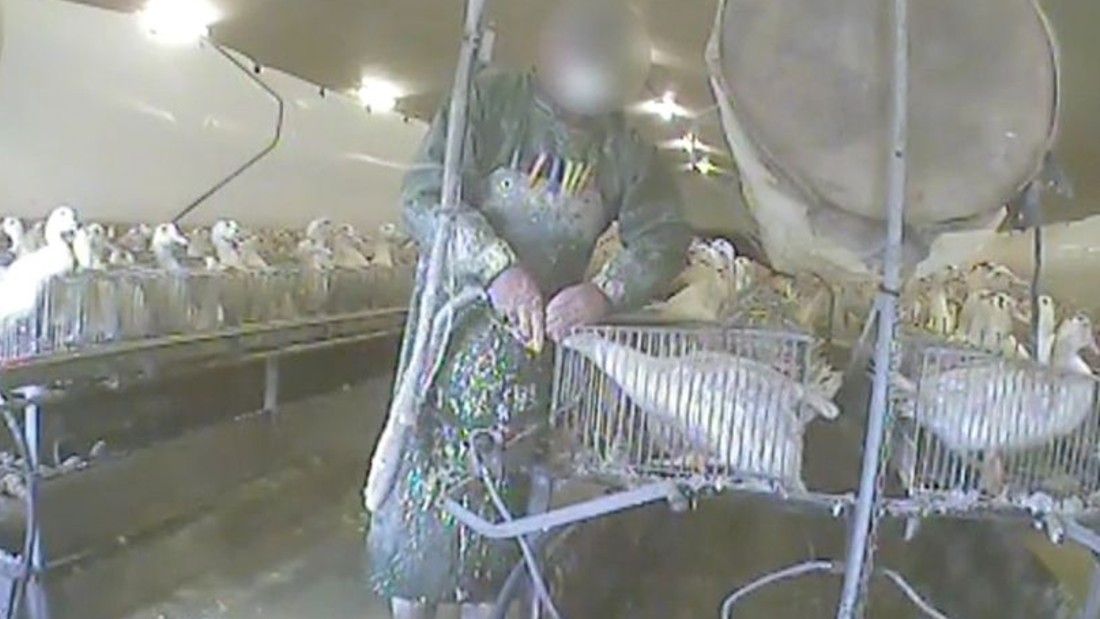
In 2013 Viva!’s joint investigation with French group, L214 exposed suffering on an almost unimaginable scale on French foie gras farms. At the centre of our investigation were farms supplying celebrity chef, Gordon Ramsay’s, restaurants.
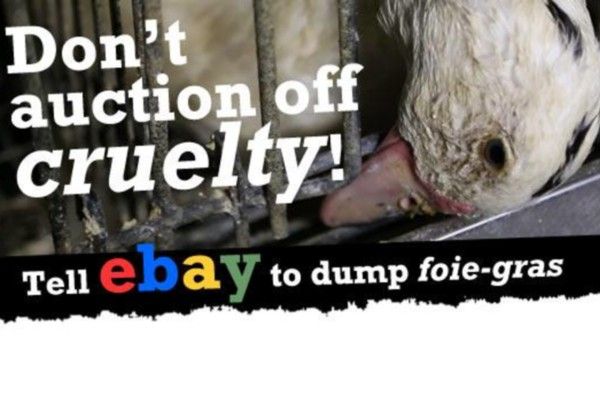
Ebay, one of the world’s largest online auction sites, still refuses to drop foie gras, and continues to sell a product in the UK that no other major supermarket will touch.

Luxury stores Fortnum & Mason and Harrods continue to continues to sell foie gras, either from tortured ducks or geese.
Amazon Victory!
Victory! Heston says ‘au revoir’ to foie gras
Success in California
Ban foie gras from cookery shows
We can all play our part in decreasing the demand for foie gras and working to end the suffering of the millions of birds still subjected to this torture.
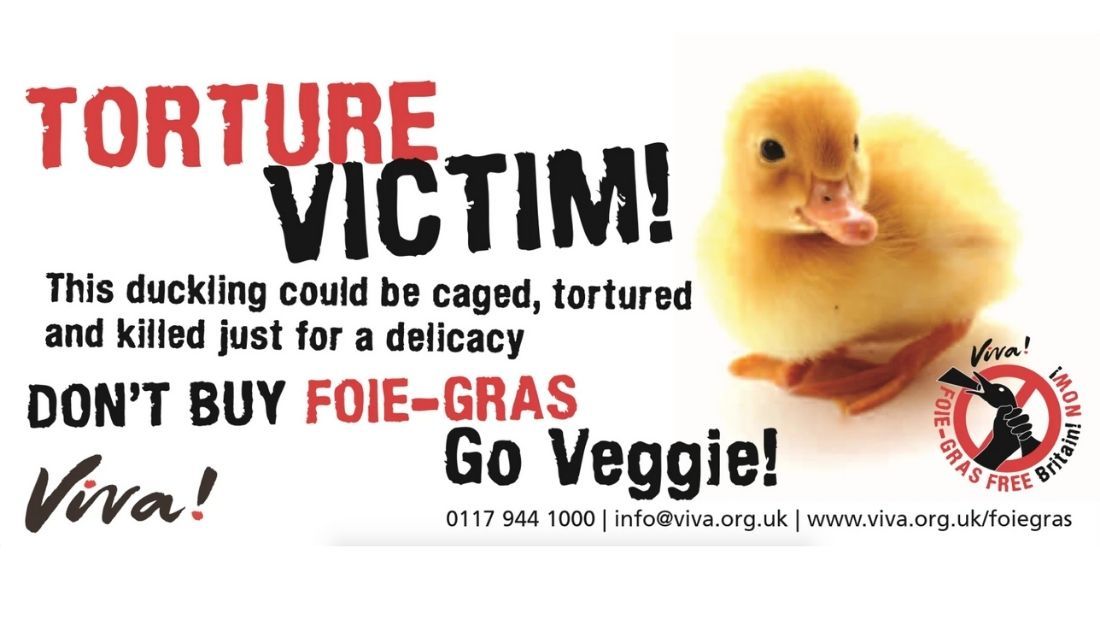
- Don’t eat foie gras! Raise awareness by telling your friends, family and work/school mates not to eat it either! Go vegan – start today!
- Sign and share the petition to Ban the Importation of Foie Gras into the UK

Put pen to paper (or fingers to keyboard). A ‘letter to editor’ to your local newspaper can be very persuasive. It is more likely to get printed if it concerns a local business.
Find out the email address of the editor or editorial department and send them an email or letter.
See our sample letter below.
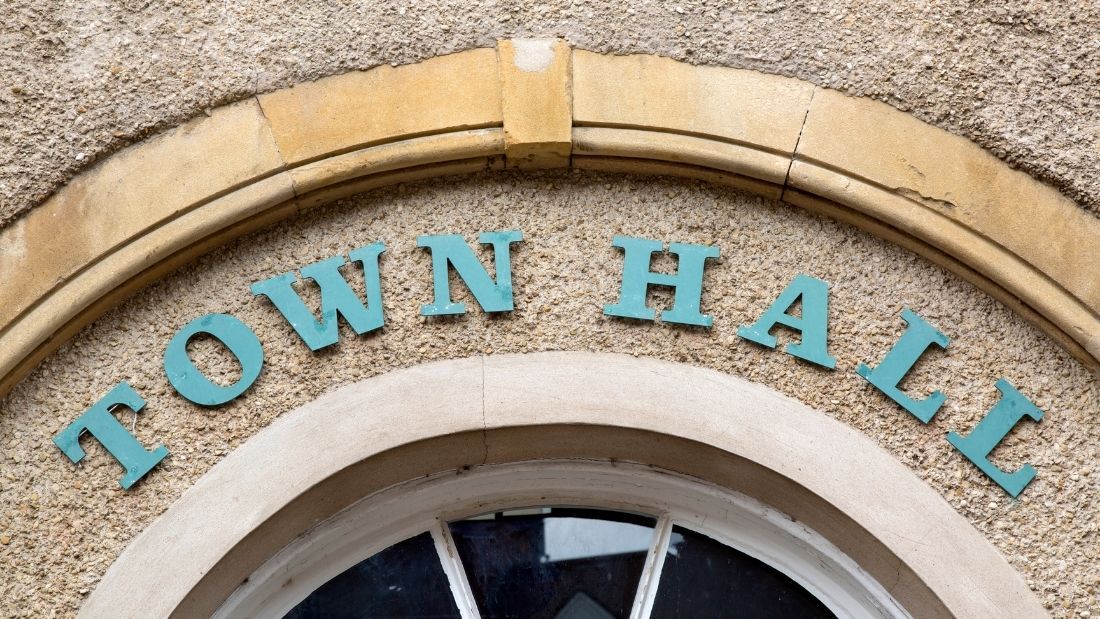
If you know that foie gras is being served in your local area, ask your local councillor to declare your local area ‘foie gras-free’.
See our sample letter below.

Ask the Secretary of State for Environment, Food and Rural Affairs, George Eustice, to ban foie-gras imports to the UK.
See our sample letter below.
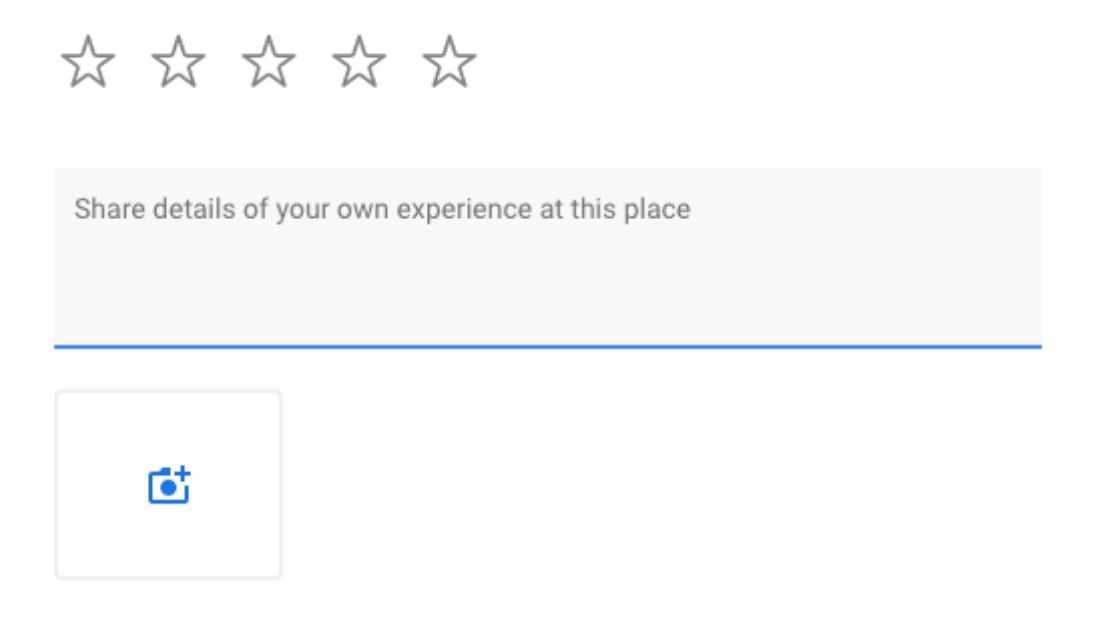
- Contact your local restaurant or shop to ask them to stop selling foie gras
- Write a negative review of the restaurant or shop on TripAdvisor, Google Reviews, or social media explaining will no longer dine with them or buy from them
Sample letter and review below.




